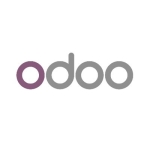What is our primary use case?
There are a lot of options for deploying S/4HANA. It depends on the industry and the customer's budget. It is usually deployed on-premise in the public sector, but tech companies mostly choose the cloud option.
SAP provides you with single-tenant and multi-tenant options when you opt for the public cloud. When it is a single tenant, it's typically a private cloud managed by SAP, but the customer's budget also factors in. If they're working with a large budget, a customer might opt for a public cloud, but government clients might opt for a completely on-premise solution because of data security regulations.
Most of our customers plan to move to S/4HANA. We usually start with central finance and later prepare a migration plan. By the time we're ready to deploy, SAP may have released a new version, so the customer might choose the latest edition depending on their budget go for the latest version, or they may only be interested in whatever version was on the market when we were in the planning stage.
What is most valuable?
S/4HANA is so much faster today than it was before. High performance is one of the best features, but the backbone of S/4HANA is its integration capabilities. They've also shifted to a focus on user experience.
The UIs used to be slightly boring, but the user experience has dramatically improved since the acquisition of Sybase, Callidus, and several other companies. SAP stays ahead of the curve and is constantly improving. If you want a feature, they're already working on it. It's one of the best ERP solutions on the market.
What needs improvement?
The ERP market is competitive, and other solutions may have advantages over S/4HANA in some industries. I work in fintech, and central finance is essential to all industries. S/4HANA provides all the features there, but when you talk about ranking the industries, manufacturing would be No. 1.
Initially, S/4HANA was getting bested by PeopleSoft in the HR sector. Now, they are catching up. In particular, SAP wasn't strong in expense management, but they acquired a company last year and Ariba several years back. Their SRM was not hit.
For how long have I used the solution?
We've been using S/4HANA for the last two and a half years.
What do I think about the stability of the solution?
S/4HANA is stable. Many companies were skeptical because it was costly and untested. It has proven far more stable than people had expected. People thought they would only switch to SAP in 2025 once the solution had matured and provided services, ECC, etc. However, customers are now willing to spend on S/4HANA because they see it's stable and stacks up well against other ERP solutions.
What do I think about the scalability of the solution?
S/4HANA is highly scalable because of the cloud, and it integrates with various publicly available software, it is highly scalable. S/4HANA has always been scalable, and now you have more ways to scale up with the subscription model as well as the multi-tenant and the single-tenant deployment options. Scalability is never a question.
How are customer service and support?
SAP support provides resolves all our problems, but the response time is slower than our customers expect. Maybe it's because they have such a large customer base and are always occupied, but that's one area all our customers mention.
How was the initial setup?
S/4HANA implementation is always complex because you need to configure it to work with your infrastructure. SAP only provides the license, not hardware, but they will connect you with a partner like HPE or IBM.
It's extremely costly if you ask for SAP to implement it, but you can deploy through some vendor like HCL, TC, Infosys, or Capgemini, and then you need to enlist a hardware partner.
The complexity also varies by industry. If it's a small industry with $40 million of revenue annually, the business processes will be simple. However, deployment is tricky for heavy manufacturing, energy, etc.
What's my experience with pricing, setup cost, and licensing?
Pricing is one area where S/4HANA has room for improvement. It's too costly for many people. They have come up with the subscription-based model also. The annual cost is $3,000 per user.
The only other expense is maintenance, but if you're paying for a subscription, you don't need to pay anything. However, there is a minimum commitment of $100,000.
Maintenance is always calculated as a percentage of your annual spending. For example, if you have implemented the solution, and it costs you $10 million in your first year, roughly 20 to 25 percent will be the operating cost. That is the maintenance fee SAP will charge. You will pay $2 million on a $10 million budget.
You can think of that $2 million as $100,000 you would pay per employee to a team of consultants. If a company is relatively small and only implemented a few million, then we would recommend that they buy SAP business and outsource all the non-SAP activities.
What other advice do I have?
I rate SAP S/4HANA nine out of 10. If you want digitization in your organization, go for it. S/4HANA is advanced and highly integrable. It's one of the best ERP solutions, but it depends on your budget because SAP is always costly.
Which deployment model are you using for this solution?
Hybrid Cloud
Disclosure: My company has a business relationship with this vendor other than being a customer. Consultant














